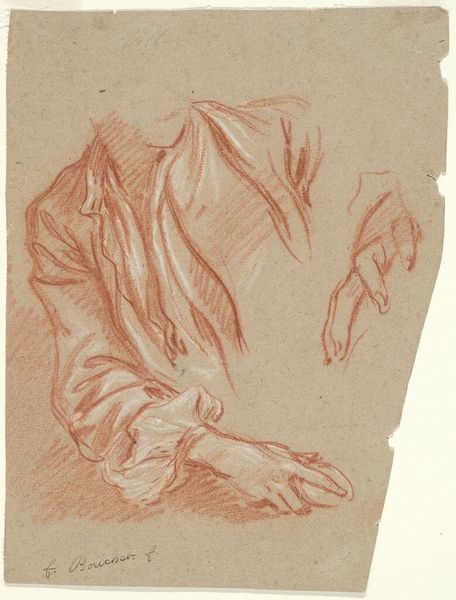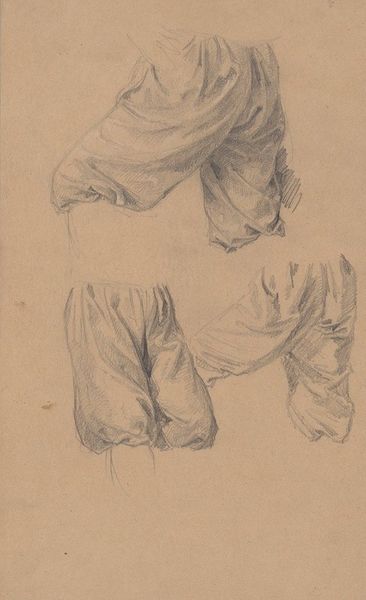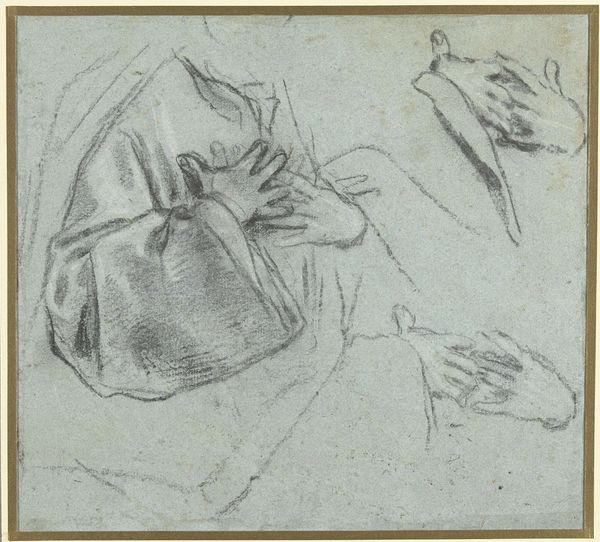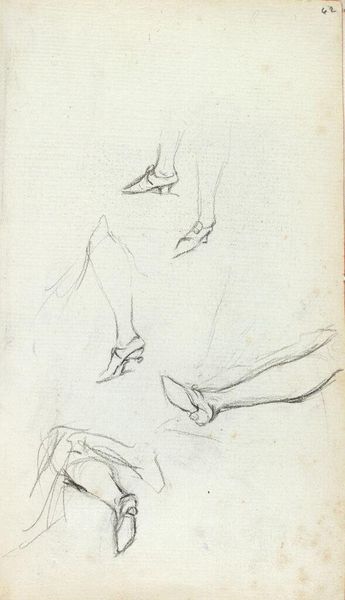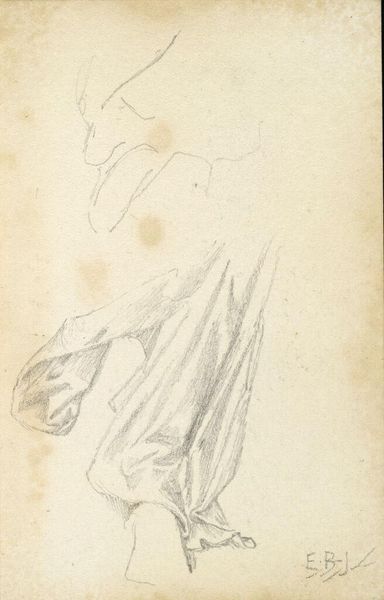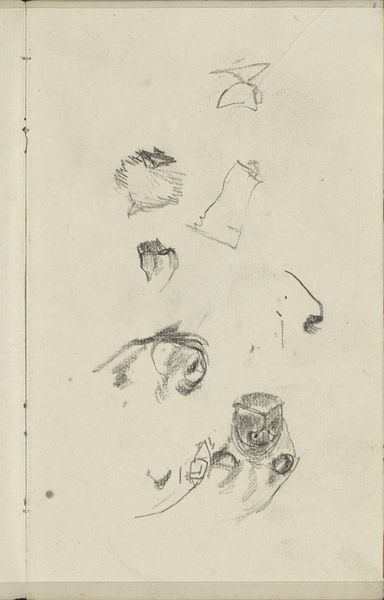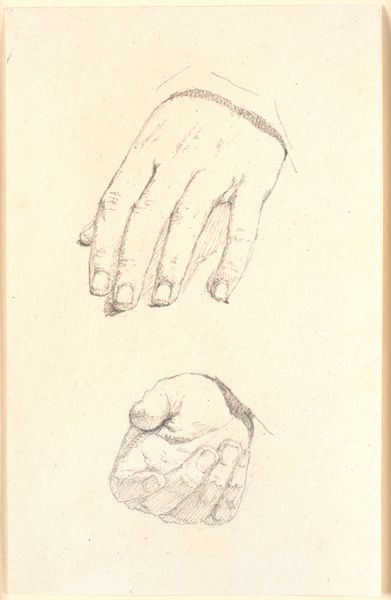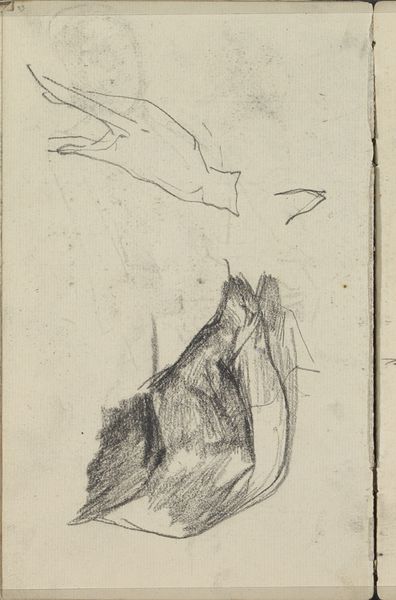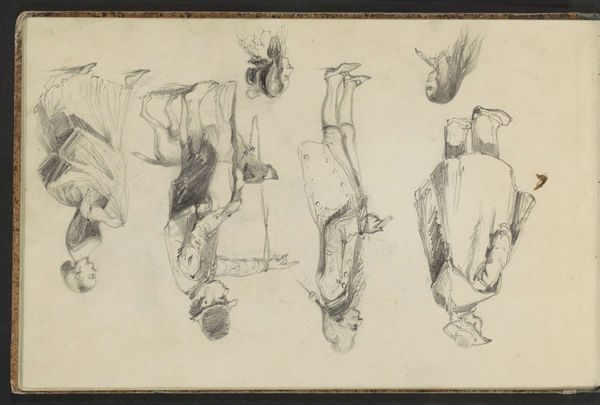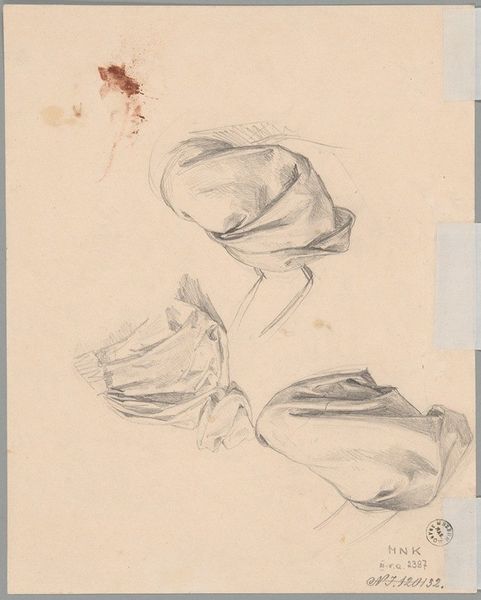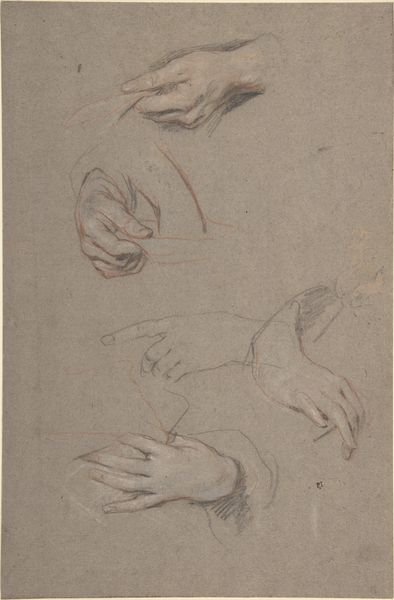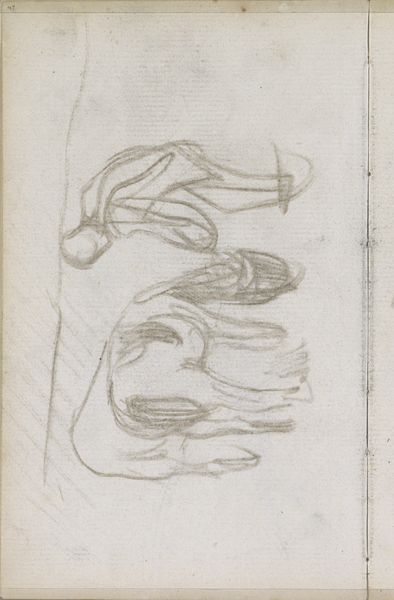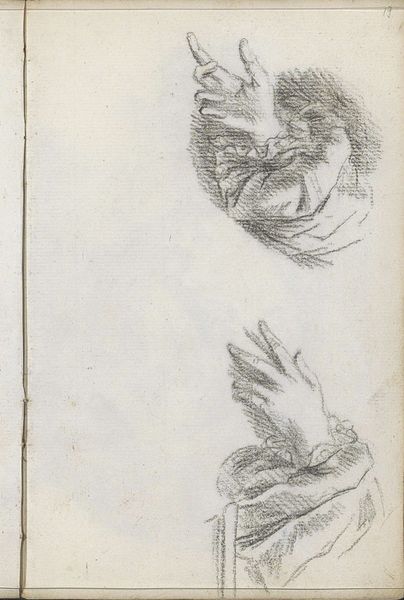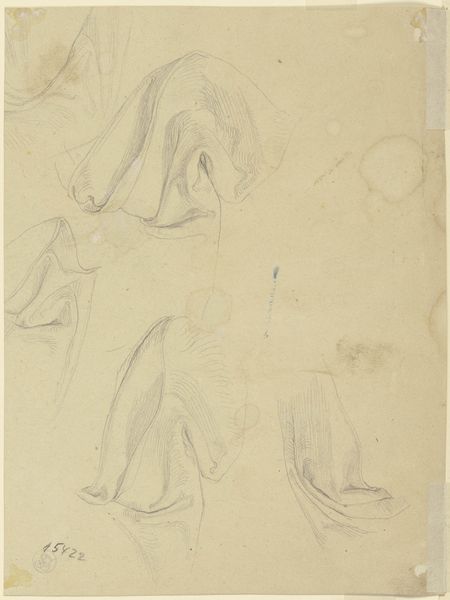
drawing, pencil
#
portrait
#
drawing
#
pencil
#
academic-art
Copyright: Public Domain: Artvee
Editor: Here we have Jόzef Simmler's "Study to an unidentified figural composition" from 1856, created with pencil. I’m immediately struck by the stark, raw emotion. The central figure seems overcome with grief or despair, yet we see detached studies of hands surrounding them. What is your take on this piece? Curator: What I find most intriguing is how Simmler utilizes academic artistic conventions to potentially critique established social or political narratives. These studies of hands, likely preparatory work, were common in academic training. Yet, by presenting them alongside a figure veiled in what appears to be intense emotion, he destabilizes a clear narrative. Who is this figure and why are they suffering? Is the artwork asking us to sympathize, or question the established figures or social classes represented through this grief? Editor: So, it's not just about skillful rendering, but also about the potential implications within its historical context? Curator: Exactly! Think about the power structures present in 19th-century Poland. The elite class and social issues were being publicly presented at that time. How might such imagery shape public opinion and the perception of power, depending on who controls the narrative? The composition, in its seemingly fragmented nature, encourages us to look deeper than mere artistic skill. Editor: I never considered how social factors influenced what was shown through portraiture or figure drawing back then. It felt more about the person represented at the time, rather than political implications or opinions. Curator: The interesting dilemma about this kind of piece is, because this study seems fragmented it presents both many meanings and none. The figure depicted is clearly emotional but not representative enough to signify a political figure or class without any background of context. Therefore this becomes a good example of political artistic critique in concept alone rather than actual imagery. Editor: This has completely changed how I will view sketches in the future! Thank you for clarifying. Curator: My pleasure, thank you for giving me the opportunity to analyze such a fine artwork!
Comments
No comments
Be the first to comment and join the conversation on the ultimate creative platform.
